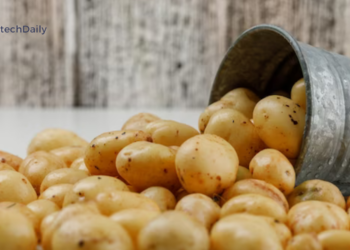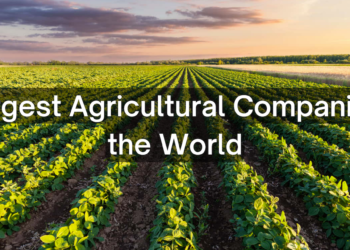The Earth beneath our feet is the foundation of life, providing sustenance for crops and supporting ecosystems. However, rampant soil degradation poses a severe threat to this vital resource. In the pursuit of sustainable land management, the concept of the “Soil Guardian” emerges as a beacon of hope. This guardian, often in the form of green manures, plays a crucial role in preserving soil health and fostering sustainable agricultural practices.
Soil Guardian Concept
At its core, the Soil Guardian is a champion for the Earth, a defender against the onslaught of degradation. It encapsulates the idea of implementing practices that not only maintain but enhance soil health. This concept is intricately linked to the broader realm of sustainable agriculture, emphasizing the importance of balancing productivity with environmental stewardship.
The Soil Guardian acts as a custodian, working hand in hand with nature to ensure the longevity of our soils. It promotes practices that nurture the soil rather than exploit it, recognizing the intricate web of life beneath the surface.
Green Manures: Nurturing the Soil
Central to the Soil Guardian concept is the use of green manures. These are cover crops strategically planted to rejuvenate the soil, offering a natural and sustainable solution to combat soil degradation. Green manures come in various forms, each contributing uniquely to the overall health of the land.
Green manures are crops intentionally grown and then plowed under or incorporated into the soil to improve its fertility and structure. These crops act as dynamic allies, working tirelessly to replenish nutrients, prevent erosion, suppress weeds, and enhance overall soil quality.
Types of Green Manures
- Leguminous Cover Crops
Leguminous cover crops, such as clover and vetch, play a pivotal role in fixing nitrogen in the soil. Through a symbiotic relationship with nitrogen-fixing bacteria, these plants convert atmospheric nitrogen into a form usable by other crops. This process not only enriches the soil but also reduces the need for synthetic fertilizers.
- Non-leguminous Cover Crops
Non-leguminous cover crops, like rye and buckwheat, contribute to soil health in different ways. They provide ground cover, preventing erosion and suppressing weeds. Additionally, these crops enhance organic matter in the soil as they decompose, promoting a healthy and fertile environment.
Benefits of Green Manures

Green manures offer a multitude of benefits to the soil and overall agricultural ecosystems. These benefits contribute to sustainable and environmentally friendly farming practices. Here are some key advantages of using green manures:
- Nutrient Enrichment
Green manures, particularly leguminous cover crops, play a crucial role in fixing nitrogen from the atmosphere into the soil. This natural process enhances soil fertility, providing an essential nutrient for plant growth. By reducing the need for synthetic nitrogen fertilizers, green manures contribute to cost savings and minimize environmental pollution.
- Erosion Prevention
The roots of green manure crops create a protective cover on the soil surface, reducing the impact of wind and water erosion. This is especially important in areas with sloping terrain or vulnerable to heavy rainfall. By preventing soil erosion, green manures help maintain the integrity of the topsoil, which is crucial for sustained agricultural productivity.
- Weed Suppression
Green manures act as effective competitors against weeds for sunlight, water, and nutrients. Their rapid growth and dense canopy shade out weed populations, reducing the need for herbicides. This natural weed suppression not only benefits the main crops but also contributes to the overall health of the agricultural ecosystem.
- Improvement of Soil Structure
The organic matter added to the soil by green manures improves soil structure. This enhances soil aggregation, porosity, and water-holding capacity. Improved soil structure allows for better root penetration, aeration, and drainage, creating an environment conducive to plant growth.
- Disease and Pest Control
Some green manure crops, such as marigolds, have biofumigation properties. These crops release natural chemicals into the soil that can suppress certain soil-borne pathogens and pests. This can contribute to a healthier soil environment and reduce the reliance on chemical pesticides.
- Contribution to Biodiversity
Green manures diversify the plant species within an agricultural system. This diversity supports a variety of beneficial organisms, including beneficial insects and soil microbes. A more biodiverse ecosystem is generally more resilient to environmental changes and can provide a natural balance in pest and disease control.
- Carbon Sequestration
Green manures contribute to carbon sequestration by incorporating organic matter into the soil. This organic matter, in the form of plant residues, improves soil carbon levels. Carbon sequestration is essential for mitigating climate change, as it helps remove carbon dioxide from the atmosphere and stores it in the soil.
- Reduced Nutrient Leaching
The root systems of green manure crops help prevent nutrient leaching by stabilizing nutrients in the soil. This is particularly important for reducing the runoff of excess nutrients into water bodies, which can contribute to water pollution. By keeping nutrients in the root zone, green manures support efficient nutrient use by crops.
- Improved Water Use Efficiency
Green manure cover crops, especially those with deep root systems, can improve water use efficiency. Their roots help capture and utilize water from deeper soil layers, making moisture available to subsequent crops during dry periods. This is especially beneficial in regions with erratic rainfall patterns.
- Cost Savings
The use of green manures can lead to cost savings for farmers. Reduced reliance on synthetic fertilizers and herbicides, as well as improvements in water use efficiency, can contribute to lower input costs. Additionally, the incorporation of green manures into crop rotation can enhance overall farm productivity.
Planting and Management Techniques
- Timing of Cover Crop Planting
Timing is critical when it comes to planting cover crops. Sowing them during fallow periods or as a winter cover ensures that the soil is continually nurtured, even when the main crops are not in the field.
- Integration into Crop Rotation
Incorporating cover crops into a well-designed crop rotation plan maximizes their benefits. Different cover crops contribute distinct advantages, and their integration into the rotation ensures a comprehensive approach to soil health.
- Methods for Termination
Knowing when and how to terminate cover crops is essential. Timely termination prevents competition with cash crops and facilitates the release of nutrients back into the soil.
Future Perspectives

The Soil Guardian concept and the use of green manures represent just a glimpse into the evolving landscape of sustainable agriculture.
Emerging Trends in Sustainable Agriculture
The future of agriculture is embracing innovative practices that prioritize both productivity and environmental well-being. Precision farming, agroecology, and regenerative agriculture are gaining momentum as farmers seek methods that align with the principles of the Soil Guardian.
Innovations in Soil Management Practices
Advancements in technology and research continue to refine soil management practices. From smart sensors that monitor soil health in real-time to the development of genetically modified cover crops with enhanced nutrient-fixing capabilities, the future holds promise for even more effective and sustainable soil guardianship.
Conclusion
In conclusion, the Soil Guardian, embodied by the use of green manures, represents a transformative approach to agriculture. As we face the challenges of soil degradation and the imperative to feed a growing global population, it is essential to adopt practices that not only sustain but rejuvenate our precious soils.
The benefits of green manures extend beyond the immediate gains in crop productivity. They encompass a holistic approach to land management, recognizing that the health of the soil is foundational to the health of our planet. The Soil Guardian concept, with green manures as its embodiment, invites us to be stewards of the land, fostering a sustainable and harmonious relationship between agriculture and the environment.
As we look to the future, embracing the Soil Guardian concept and incorporating green manures into mainstream agricultural practices is not just an option but a necessity. It is a call to action, a commitment to leaving a legacy of fertile and resilient soils for generations to come. The time to adopt the Soil Guardian mentality is now, ensuring a sustainable and thriving future for agriculture and the planet.









